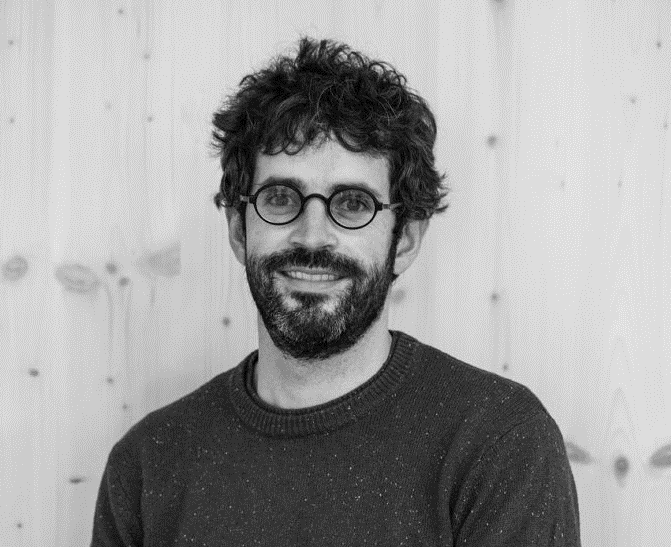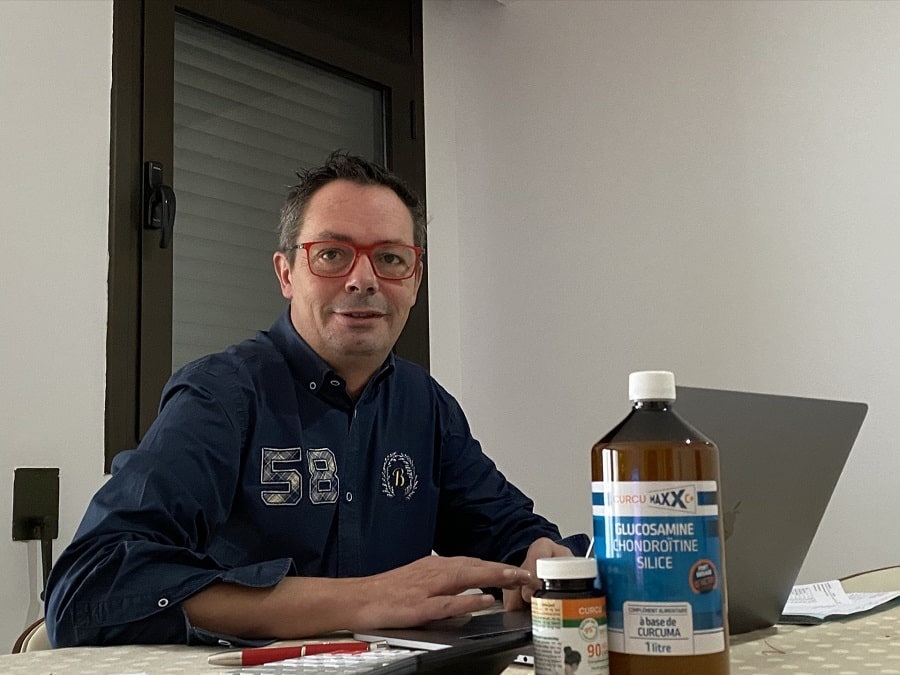CEO of a new Andorran bank Vallbanc Christoph Lieber spoke to all-andorra.com about future of private banking in Andorra (Pyrenees) and bank’s strategic plans:
Interview : Irina Rybalchenko
Before you were appointed CEO of Vall Banc and moved to Andorra, you worked in Germany and Switzerland. What do you see as the greatest difference between the banking systems in these countries and in Andorra?
In all three countries clients enjoy private banking services; however Swiss and German banks are able to undertake highly complex transactions and offer their clients a wider range of services. I believe that Andorra will catch up in the coming years, as the government of Andorra has always offered great support to its banking sector. After all, this sector accounts for about 20% of Andorra’s GDP, whereas the Swiss banking sector represents less than 10% and German banks a mere 5% of their respective GDPs.
Due to the great importance of the Andorran banking sector to the country’s economic performance, not only is the government very attentive to its needs but the sector’s jurisdiction is very wide-ranging. Levels of banking secrecy and asset protection are high, and clients benefit from very strict banking regulations protecting their rights and privacy. Furthermore, all these regulations comply with the Organisation for Economic Co-operation and Development (OECD) rules and allow Andorran banks to provide their customers with sophisticated and secure state-of-the-art banking services, backed by both a financially and politically stable environment.
The private banking market is suffering worldwide from the abolition of banking secrecy. In 2018 Andorra will join the Tax Information Exchange Agreement. How will this impact the Andorran banking sector?
The private banking sector is growing in most countries as private wealth is increasing globally. Countries whose value proposition for investors relied strongly on their banking secrecy policies now have to rethink their services and focus more on the quality of their services and the performance of their investment strategies.
The agreement on the automatic exchange of tax information does not entail full disclosure of information on beneficiaries. The authorities are interested in bank accounts for tax reasons, but they will not receive information on sensitive private data, movement of money or details of investments.
Nevertheless, signatories to the agreement commit to the exchange of several types of information between their financial institutions and tax authorities in the client’s country of residence for tax purposes. This includes information on the client’s identity, such as name, address, and tax identification number; information on the client’s bank account, like the name of the financial institution and the client’s account number; and financial information such as the account balance, dividends, income, and gross proceeds.
Andorra still maintains a high degree of banking secrecy, offering confidentiality to its clients while remaining fully compliant with international best practice regulations through the Know Your Customer (KYC) process of identity verification, which filters out financing of terrorist activities.
Additionally, Andorra is becoming a compliant jurisdiction for tax transparency and as a whole, offers political, economic and financial stability, including solid democratic political practices. It is well regulated and offers a long tradition of banking expertise. As such, we at Vall Banc feel assured that the private banking market in Andorra will continue to flourish.
However, does Vall Banc plan to diversify its business to include investment banking?
As of today, we don’t intend to enter the field of investment banking. It is not part of our core strategy. Our primary business objective is to successfully compete with top international banks by offering highly sophisticated wealth management services in addition to undertaking commercial activities.
What are the preliminary financial results of Vall Banc in 2016? What is the volume of assets under management?
Financial results have not yet been published but in general we are happy with the business developments in the first six months since the takeover in July 2016.
While the annual report and financial statements for the year have not yet been published, I am happy to say that the operational results for the first six months since the takeover by J.C. Flowers in July 2016 have certainly surpassed our expectations. We are now managing assets worth about EUR 2.5 billion, but as the migration is still ongoing, further significant amounts are expected to be transferred to Vall Banc within the next few months.
How many new client accounts have been opened by Vall Banc since the acquisition?
We are opening new accounts every day. Since Vall Banc was acquired by J.C. Flowers in July 2016, a couple of hundred new accounts have been opened.
Are any accounts or assets still blocked due to the 2015 BPA crisis? Are cash withdrawals still capped for former BPA customers and are there any other restrictions?
Customers whose accounts have undergone successful migration from BPA to Vall Banc are able to access and operate their accounts without any restrictions. As to the withdrawal limits, none are placed on Andorran citizens and customers who can prove their compliance with tax law. The international best-practice rules that Vall Banc is adopting naturally apply here as well.
In fact, some of our customers who acquired securities before the J.C. Flowers takeover have experienced inconvenience. Their positions are currently still blocked, which is based on contractual agreements by the former owner. We are making every effort to solve this specific problem as quickly as possible.
In view of the above, how will the compliance procedure change?
Following the previous owner’s resolution, the Government of Andorra, together with the supervisory agent, put in place compliancy rules of the strictest level in an international context. Due to such measures, Andorra is on its way to becoming recognized as a well-regulated and compliant financial jurisdiction, which, in turn, will have a very positive impact on future business.
Speaking more specifically, the requirements of Andorran banks to comply with such controls as Know Your Customer (KYC), Anti-Money Laundering (AML), Counter-Terrorist Financing (CTF) and regulations governing sources of funds have significantly increased. Now the requirements are much stricter than those of many banks in OECD countries.
Will this trend continue in future?
I predict that future requirements will return to a more standard level, but will still meet all OECD conditions, whereas in Switzerland, for example, these requirements will remain on the existing higher level.
What is your development plan in the domestic market, both tactical and strategic?
Our Tier 1 capital ratio of over 30% is already the highest in Andorra. So is our liquidity ratio. Beyond that, we have a strong governance, great international financial expertise, and a solid business model that adds to our security and safety. Furthermore, we are a fully compliant bank and follow all international rules and regulations.
Additionally, we are establishing a partnership with one of the leading global wealth management providers. This will allow us to offer services such as portfolio risk management, research, portfolio optimization, a trading platform and state-of-the-art reporting, which will help our clients make even better investment decisions and allow us to compete with any renowned international bank.
Another objective is to improve the quality of Vall Banc’s service delivery channels in order to allow clients to access the bank whatever way suits them best: via telephone, digital media or in person.
One of our short-term goals is to invest heavily in both our bank and its employees. We will soon start renovating our main office and we’ve started investing in digitalization.
How much money are you ready to spend in 2017 to make all these investments?
The budget is substantial and underpins our strong commitment to Vall Banc. We want to offer state-of-the-art access through digital media and devices as well as highly personalized and tailored services through our relationship managers. Our employees are also key to our business, which is why we are currently carrying out numerous training sessions that will enable us to provide better advisory services to our clients, including top investment guidance and services. This is in order to fully understand our clients’ financial and personal needs as well as their risk appetite and capacity.
Are you planning to expand internationally?
I believe that our resources and energy should be focused, which means that we won’t be able to serve clients in all world regions.
We plan on focusing on all EU countries and Switzerland, and of course on the local market. At the moment, Vall Banc also has an important client base in Eastern Europe and Russia as well as Latin America.
However, as Andorra is not an EU member, we do not hold an EU banking passport. But we do plan to promote Andorra as an alternative financial centre to EU countries and Switzerland.
What exactly are you going to do?
We will do roadshows in countries like Switzerland, Germany, and the UK and organize PR campaigns in Spain and France to explain our core strategies and advantages to potential clients.
I see my role as that of Andorran ambassador to the EU banking sector.
Does the Bank work with clients from the US?
Working with US clients would require us to trade in US securities and hold a Securities and Exchange Commission license. This would involve complying with many separate regulations and tax payment requirements. Therefore, the US market is not a focus market for us.
Modern banking IT is vital to business success. What kind of new IT services are you going to develop for your clients?
As previously mentioned, we’re investing in both the digitisation of the bank’s IT systems and client accessibility via digital devices. We will implement a state-of-the-art digital front end that allows our clients to get 24/7 access to their assets. Additionally, with our upcoming partnership with one of the leading global wealth management providers, which I referred to earlier, we will be able to offer our clients the most sophisticated investment strategies, as well as a global trading platform to trade securities, commodities and currencies in the most effective way.
What is your view on gold bullion and other metals as investments?
Physical assets like commodities have many disadvantages. Considering the specific risk of an individual portfolio, I would recommend to keep a 5% to 10% maximum of one’s bankable assets in commodities such as gold and other metal investments.
Having said that, however, we are happy to individually advise our clients on all asset classes.











